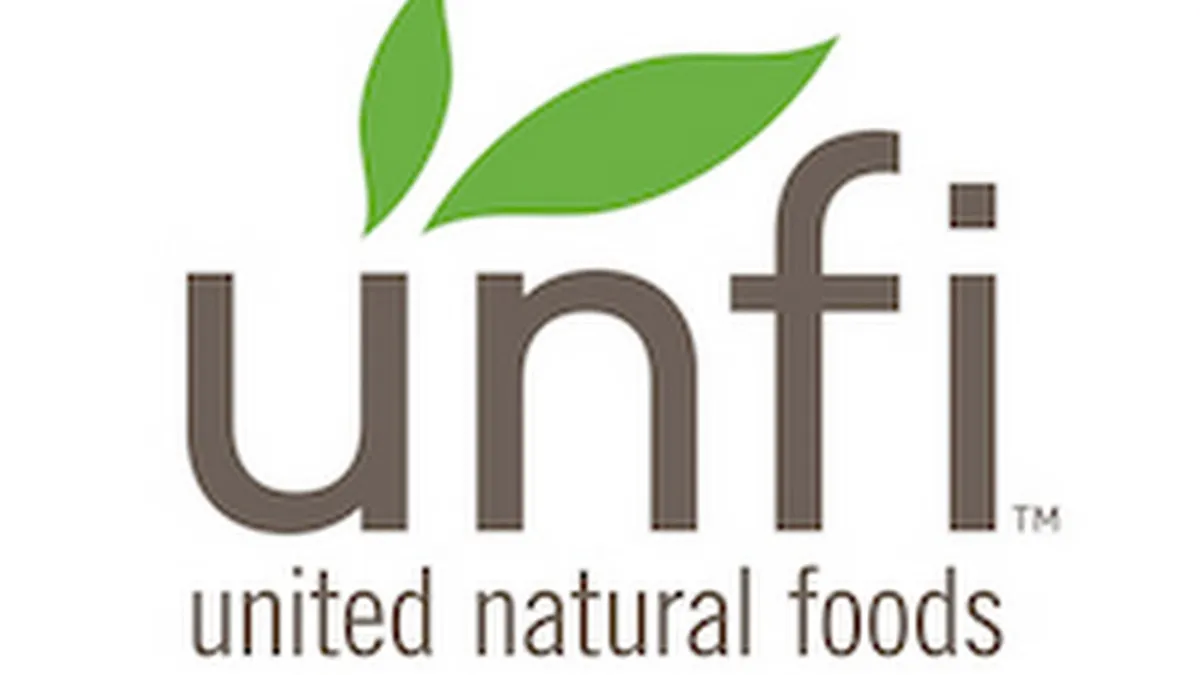Dive Brief:
-
United Natural Foods (UNFI), Whole Foods’ largest supplier of organic, natural and specialty products, is one of the unexpected beneficiaries of Amazon’s acquisition of the grocer in August, claims an article in The Motley Fool.
-
UNFI stocks had tumbled earlier this year, but after the acquisition, shareholders have been bullish in their outlook for the distributor. UNFI recorded net sales of $2.34 billion in the fourth quarter of the fiscal year, a 5.7% increase over the same period last year. Net sales increased 9.5% for the entire year, for a total of $9.27 billion.
-
The future of UNFI’s relationship with Whole Foods is uncertain, as Amazon may seek to grow its own footprint in distribution.
Dive Insight:
United Natural Foods, which has experienced the highs and lows of Whole Foods' performance over the years as the retailer's main supplier, is seeing clear benefits from the Amazon deal. UNFI has partnered with Whole Foods for 19 years, and currently provides 35% of the retailer's wholesale business. But will the relationship last?
Despite its shaky stock performance earlier in the year, UNFI is a solid performer. The company carries more than 110,000 products to 43,000 customer locations in the U.S. and Canada. And the natural food market is only getting bigger. Organic foods make up more than 5% of total food sales in the U.S., according to the Organic Trade Association, and overall sales grew 8.4% last year. With recent acquisitions of its own, including Haddon House, Nor-Cal Produce and Gourmet Guru, UNFI has expanded its supply capabilities for Whole Foods as well as other grocers.
The immediate future looks bright for UNFI, with first quarter net sales for fiscal year 2018 up 7.9% over last year. UNFI expects strong growth ahead, but questions remain about how Amazon will handle Whole Foods’ distribution in the future.
Amazon is looking for ways to increase efficiencies at Whole Foods, which has one of the highest operating costs in the industry. Reducing prices on the grocer’s mainstay of natural products might not be possible — not while maintaining the profitability of suppliers. Whole Foods used to have a tight grip on the organic food market, but with Kroger, Walmart, Costco and Safeway also selling natural products and breathing down its neck, Whole Foods must look for ways to be more efficient and competitive. One way might be for Whole Foods, through Amazon, to cut out UNFI — or at least scale back — and deal with manufacturers directly.
Ajay Jain, an analyst with Pivotal Research Group, believes that in its quest to cut costs and pass savings along to customers, Amazon will eventually look to direct sourcing from manufacturers.
"Over time, we would expect Amazon to streamline Whole Foods' existing supply chain,” he wrote in a recent research note. “This could very well include a higher percentage of goods sourced directly from manufacturers,"
Of course, Whole Foods’ success is not a sure thing, even with the backing of Amazon. Some Whole Foods customers have recently complained that quality and availability of products have dipped since the merger, and said they’re moving on to competitors. Amazon is trying to find the balance between Whole Foods' core identity and what will make Whole Foods successful.
UNFI has a contract with Whole Foods through September 2025, but in the meantime, UNFI would do well to consider growth opportunities independent of Whole Foods.








